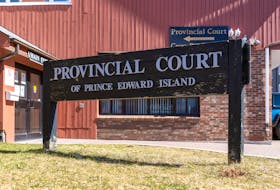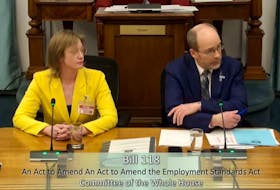CHARLOTTETOWN, P.E.I. - It’s not unusual for permanent residence applicants to come to Canada without a permanent address, an immigration fraud trial heard Thursday.
That information came from an Immigration, Refugees and Citizenship Canada employee who testified in a trial for Sherwood Motel owners Yi Zhong and Ping Zhong.
Yi Zhong is charged with four counts of counselling, aiding and abetting misrepresentation under the Immigration and Refugee Act.
His sister, Ping Zhong, is facing two counts, and the siblings are charged jointly with one count of the same offence.
Sarah Joncas, a supervisor of operations with Immigration, Refugees and Citizenship Canada, said a lot of permanent residence applicants don’t come to Canada with a permanent address.

Joncas said they have 180 days to provide one after landing.
During the first two days of the trial, a Canada Border Services Agency investigator read through immigration documents for several provincial nominee program (PNP) applicants who listed 281 Brackley Point Rd. as their address, which is the location of the Sherwood Motel, while other documents listed addresses in different provinces.
On Thursday, Joncas said under the Charter of Rights and Freedoms, permanent residents can choose to live anywhere in Canada.
She also testified that a person who came to P.E.I. under the PNP could leave the province and their permanent residency wouldn’t be at risk.
Their good faith deposit, however, would be, Joncas said.
Applicants under the PNP paid $25,000 good faith deposits to the province to show they intended to stay in P.E.I.
If they did not stay, the money was defaulted to the province.
Joncas testified she worked in Charlottetown for several years and during that time she saw one case of the province withdrawing a PNP nomination certificate.
In that case, it was under the skilled worker stream, she said.
During Joncas’s testimony, the court heard an approved applicant doesn’t become a permanent resident until arriving in Canada when they get the final approval at their port of entry.
Joncas agreed with Defence lawyer Lee Cohen that it might not be a good idea to buy property or enter into a lease before someone receives their permanent residency approval.
The court also heard there are no rules that prohibit having someone’s permanent resident card sent to a representative instead of directly to the applicant.
Permanent resident cards are needed to travel outside of Canada but are not necessary to maintain permanent resident status if the cards expire and aren’t renewed.
The trial continues this morning.
[email protected]
Twitter.com/ryanrross
Related:








